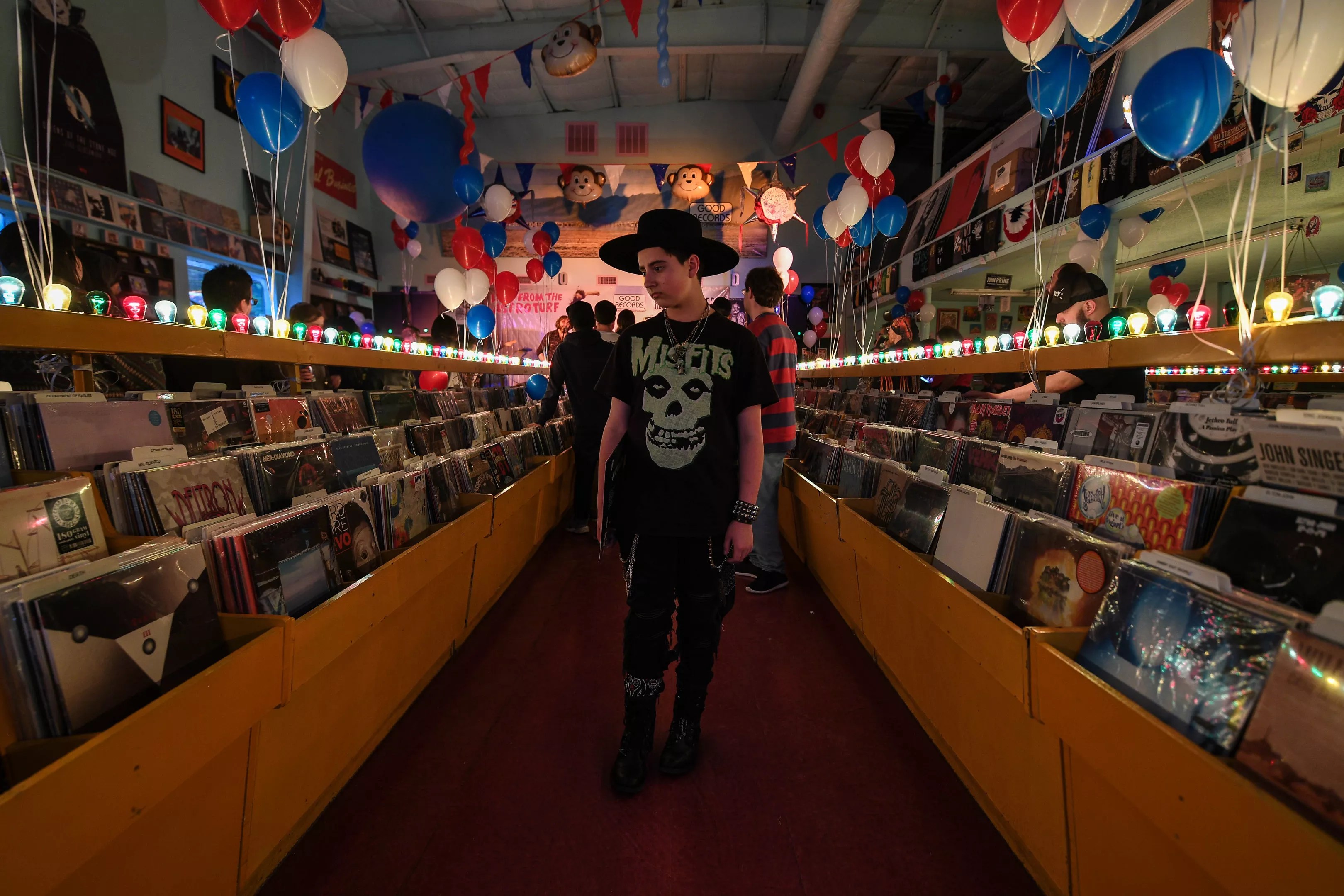
Hannah Ridings

Audio By Carbonatix
The millennial generation is starting to reach the age when we sound like grandparents who tell the little ones stories about what life was like in “the before time … in the long, long ago.”
Of course, our stories are a little different. Our “five miles to school in the snow with no shoes” tales are more like, “If you wanted to listen to a song, you had to fast forward to it” or “If the CD had the tiniest scratch on it, you’d have to scrub it out with toothpaste or go the record store and buy another copy.”
This might be words of an old man rising on the inside, but in many ways those times in the ’80s, ’90s and “naughties” were better compared with our digital age of media convenience. Holding a physical album or movie in your hand and storing it on an actual shelf really made the ol’ days actually good. Don’t be so quick to shout, “OK, boomer.” For starters, I’m not a boomer, and I have the delinquent student loan to prove it. Also, the data on the sales of physical media media show the market is favoring the archaic ancestors of modern streaming services.
A report compiled by MRC Data and Billboard found that sales of physical albums are up and digital sales are down. Vinyl sales grew by more than 51%, and CD sales grew by 1% in the last year. This is the first year in which CD sales have increased since 2004, which is especially impressive considering that sales of digital albums dropped by 24% and digital tracks dropped by 13% in the same period.
This may sound surprising in an age when every movie, song and TV show you can ever remember occupies a space somewhere on Netflix, Spotify, Apple+, Apple Music, Apple TV, Amazon Prime, Disney+, Hulu, Shudder, HBO Max, Tubi, Crackle, Plex and probably a thousand other platforms. It’s not a surprise if you’ve ever tried to watch, listen or lounge out to something that required more muscle movement than your fingers in order to operate it.
Granted, digital media is convenient, and its libraries run deeper than any cartridge, cassette or compact disc. Not long ago, my brain randomly reminded me of a comedy music group called Corky & The Juice Pigs who performed an R.E.M. parody on MADtv with comedian Seán Cullen doing a spot-on music impression of Michael Stipe’s signature vocal pitch. I found a bootleg recording of the TV appearance on YouTube, a digital version of their first album on Apple Music and a second album I never knew existed in the span of 15 minutes.
This is the kind of future we dreamed about when we were kids fumbling with cassettes and blowing into Nintendo cartridges. Every time we had to rewind a tape to get to the one song we wanted to hear or we needed a pencil to spool a tape back in its case without twisting or breaking, it seemed this day couldn’t arrive soon enough.
Media that you hold in your hand becomes a collector’s item, another piece to your catalog that you can put on a shelf and admire.
Now that day has been here for a while, the advantages of the old ways are more apparent. For starters, you get to own the media. You may not own the rights or the ability to charge people for the opportunity to consume it, but the song or movie can’t be taken away from you by a corporate entity without any warning. Streaming services give the owners that ability even if you’ve paid money directly for that item. If it’s not backed up on a hard drive or a phone, it can be removed for good and you don’t get a refund.
You also can’t amass a true music or movie collection on a streaming platform – or at least not in a way that’s meaningful. Now the big streaming outlets are much like cable TV in the sense that you have to pay for a variety of channels and/or shows whether you watch them or not. This means a personalized list of your favorite stuff isn’t something you can show off to people.
Media that you hold in your hand becomes a collector’s item, another piece to your catalog that you can put on a shelf and admire as a monument to the things that bring you joy, inspiration and entertainment. It’s a trophy collection that rewards us with good memories, reminding us of the great ways we’ve spent our time.
Music especially is something that’s meant to be shared. While you can send someone an audio file or share a playlist, a mixtape on a burned CD means something. Putting one together requires time, patience and thought.
Giving someone a mixtape or a CD collection of songs is a journey of surprises and thoughtful communication. Giving someone a Spotify playlist is an even lazier way of saying, “I was thinking about you but not enough to get off my ass and actually get you something with any real meaning or purpose.”
Even the powerhouse of digital media can’t replicate that because the inconvenience of putting something so unique together is what makes it special. It’s yours, and as long as you take care of it, no invisible hand from the Internet can take it away from you.
Oh yeah, and you don’t have to endure ads for Joe Rogan’s podcast on a CD.